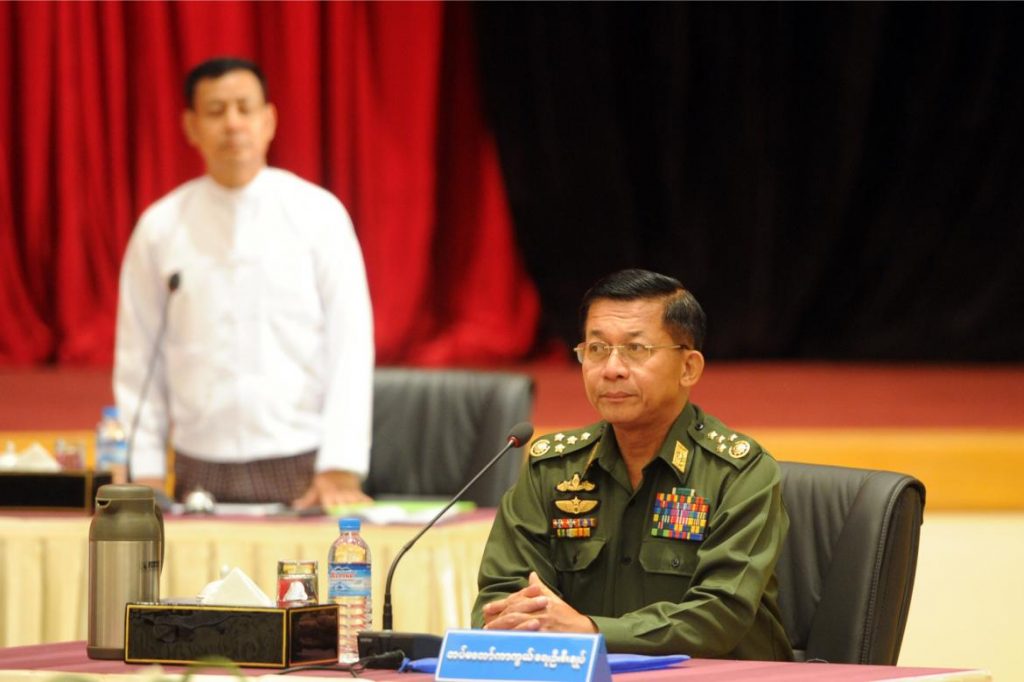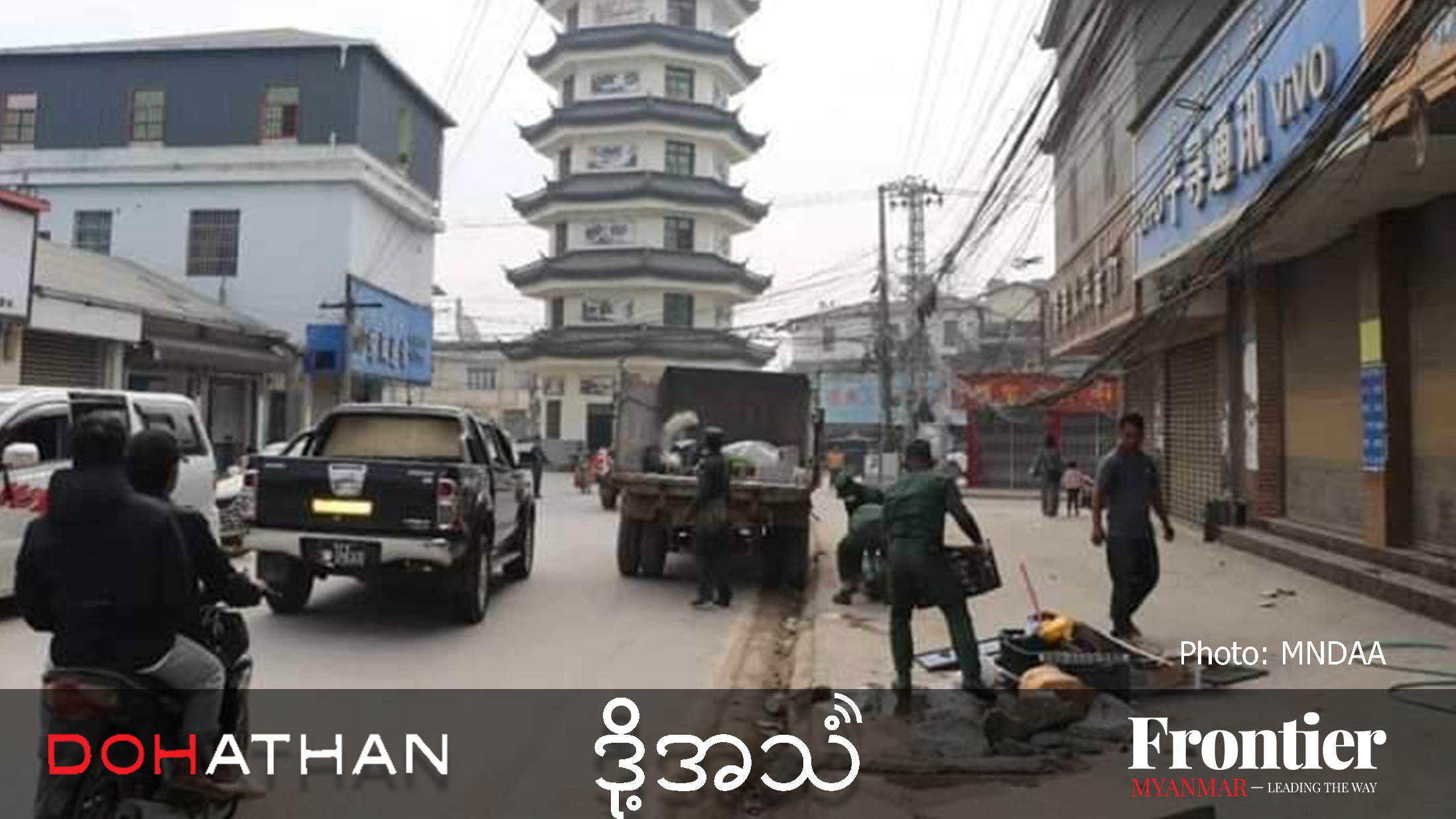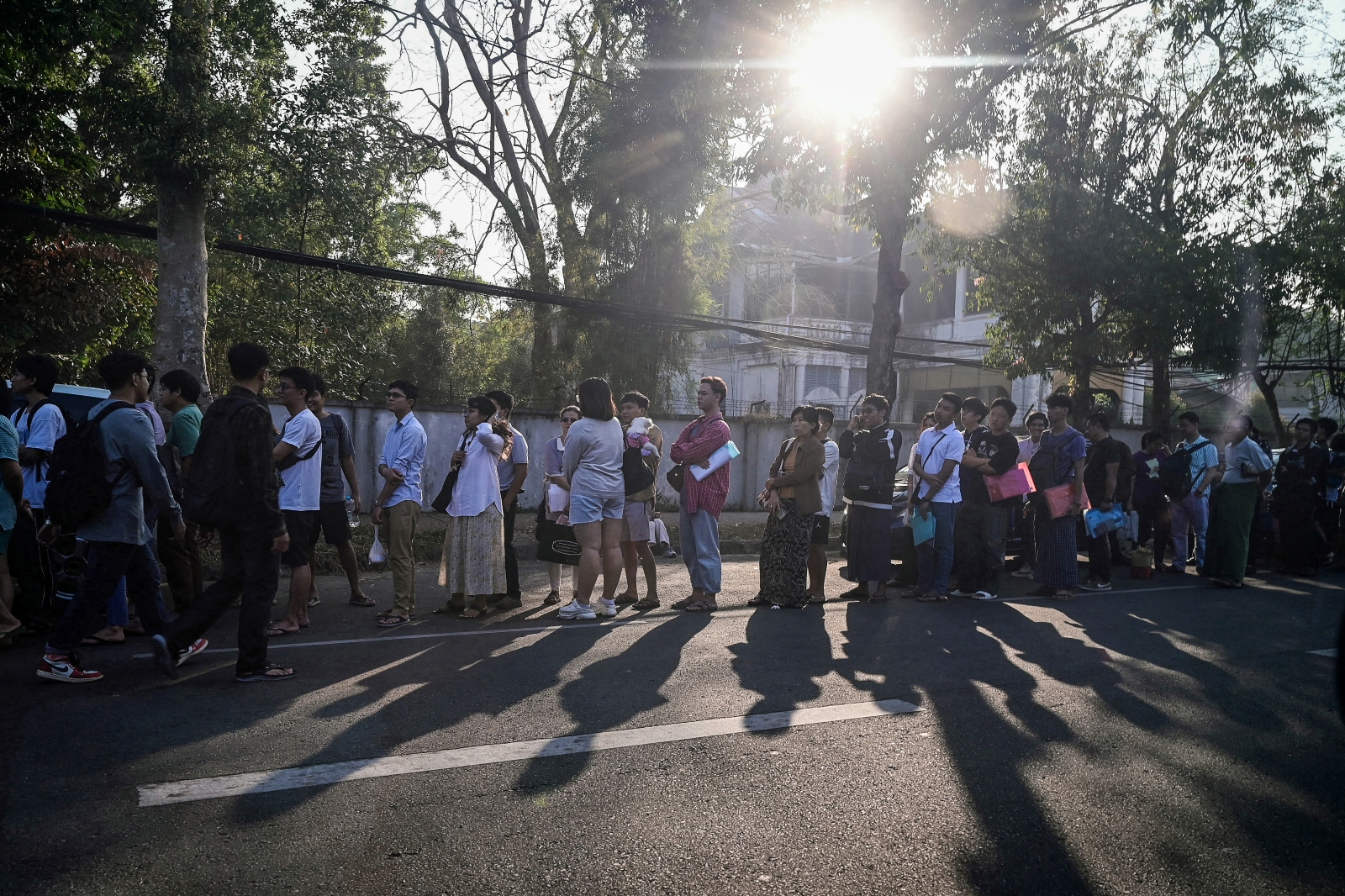There are three main reasons why the Tatmadaw decided to change its stand of more than 50 years and accept a government chosen by the people.
The Tatmadaw Commander-in-Chief uttered historic words in the final weeks of 2015. Senior General Min Aung Hlaing said the Tatmadaw would accept the result of the November 8 election and cooperate with the incoming National League for Democracy government. He gave this commitment in an interview with the Washington Post and later when he met Daw Aung San Suu Kyi after the NLD’s landslide victory.
The tatmadaw ruled Myanmar directly or indirectly for nearly 50 years after seizing power in 1962. I would like to discuss why it has changed its stand and accepted a civilian government.
Looking back over the last 50 years, the Tatmadaw never accepted the choice of the people and exercised total control over state power. The present Tatmadaw leaders changed their stand because they did not want to face the consequences if they refused to accept the election result. The NLD’s crushing landslide demonstrated the nation’s overwhelming support for Daw Aung San Suu Kyi and her party. The Tatmadaw would surely have faced huge popular resistance had it refused to accept the election result.
In former times, the Tatmadaw would not have cared about creating upheaval by defying the will of the people. But the situation has changed completely since the change of government in 2011 and the reforms that have brought greater media freedom and transparency. These reforms have also served to keep the officers and soldiers of the tatmadaw better informed about domestic and international developments. They are well aware of Daw Aung San Suu Kyi’s popularity. Under such circumstances, members of the Tatmadaw might disobey orders to use lethal force against protesters. Avoiding such a situation is one reason why the tatmadaw changed its stand.
The Tatmadaw was also well aware that if it refused to accept the election result it would run the risk of Myanmar again being isolated by the western world, including the United States, the United Kingdom and the European Union.
Support more independent journalism like this. Sign up to be a Frontier member.
In the past, the Tatmadaw relied on the support of China and Russia. Today, the Tatmadaw wants to distance itself from China and be friendly with the US and other western countries. One reason why the Tatmadaw wants western recognition involves the conflict that erupted in February last year in the Kokang region on the border with China in Shan State. The fighting erupted when an ethnic Chinese rebel group, which had been driven out of the region and into China by the Tatmadaw in 2009, launched a surprise attack aimed at regaining control of the area. Dozens of soldiers were killed on both sides and thousands of people were displaced, many of whom sought refuge in China.
The fighting led to strains in relations with Beijing after bombs dropped by Myanmar warplanes on Chinese territory near the border resulted in civilian casualties. China complained and it also deployed troops along its side of the border.
The tatmadaw was furious about the support that it believed the rebel group had received from the other side of the border to launch an operation it regarded as a threat to national sovereignty. This is a reason why the tatmadaw no longer wants to be intimate with China. It is also a reason why the Tatmadaw opted to accept the election result and avoid antagonising the US and other western nations.
The final reason for the change of stand by the Tatmadaw is that regardless of the election result and its decision to allow the NLD to form government, the military’s interests remain protected under the 2008 Constitution. The Tatmadaw can continue to dominate the National Defence and Security Council – over which it has sought to further tighten its grip under a draft bill before the outgoing parliament – and it also controls the key ministries of Defence, Home Affairs and Border Affairs, as well as retaining the 25 percent of parliamentary seats held by its unelected appointees.







